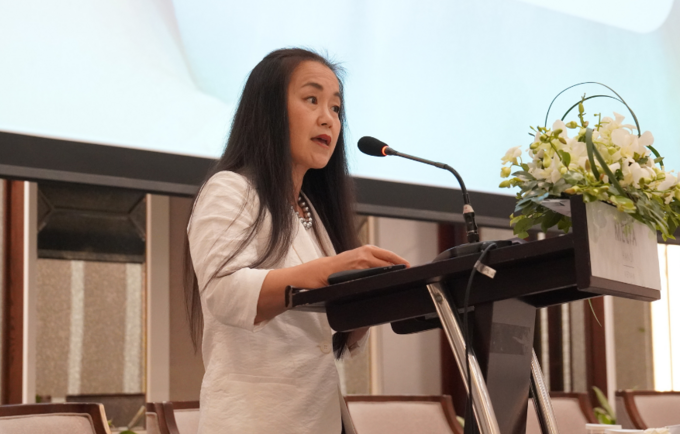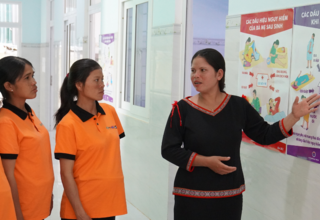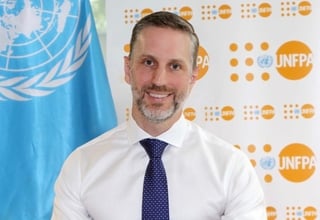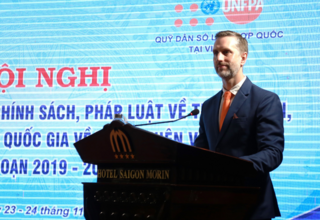Excellency, Vice Minister Tran Van Thuan
Representatives from concerned departments of the MOH, Research and Training Institutions, EU-ASEAN Business Council, Private Sector, Civil Society Organizations,
Very good morning,
I am honored to be here today to deliver a keynote address to kick off the third Value of Diagnostics workshop in Vietnam, hosted by the EU – ASEAN Business Council in partnership with the EuroCham Vietnam under the theme “Screening Towards Better Healthcare in Viet Nam”. I would like to thank EU-ASEAN Business Council for giving me the opportunity to participate in this inspiring event.
Each year, millions of people die of diseases, which, as the reality has proved, can be eliminated with preventive medicines to stop the occurrence of the disease, or to stop and mitigate the complications arising from it.
I wish to take an example of cervical cancer in the context of Vietnam. Today, cervical cancer remains a public health concern that continues to threaten the welfare and well-being of women and the population as a whole. According to the 2018 report, cervical cancer is the sixth most common cancer affecting Vietnamese women, with nearly 4,200 new cases and 2,420 deaths. It has been projected that without any intervention, about 200,000 Vietnamese women will die from cervical cancer by 2070.
Research shows that after the age of 60, women have an accelerated and increased risk of developing invasive cancer. This is a health concern for Viet Nam as population aging is progressing fast. At present, 12.8% of the Vietnamese population are aged 60 and above, transitioning from the “ageing phase” since 2011 to the “aged” phase by 2036. Vietnamese women are disproportionately affected by population aging, as women live longer than men, and feminization of aging as well as feminization of poverty is a reality. As the increase in risk for cervical cancer over time is highly attributed to the aging process, there is a need for a lifelong surveillance of cervical cancer in women in preparation for an aged society in the country.
Dear participants,
Cervical cancer is killing more women globally than HIV, TB and Malaria combined. However, the high mortality rate from cervical cancer could be reduced through a comprehensive approach that includes prevention, early diagnosis, effective screening and treatment. We all know that Human papillomavirus (HPV) vaccines have been available since 2006. Evidence from international studies also confirm that a strategic combination of a sufficient coverage of HPV vaccination for adolescent girls and a sufficient coverage of cervical screening and an appropriate treatment for all women can eliminate cervical cancer as a public health problem within our lifetime. Unfortunately, in Vietnam, the HPV vaccination rate and the cervical cancer screening rate are low. Our study in 2021 shows that only 12% of women and girls aged 15-29 are vaccinated, and only 28% of women aged 30-49 have been screened so far.
A new investment case study conducted by UNFPA Viet Nam in 2022 has demonstrated that HPV vaccination, cervical cancer screening and treatment can bring very worthwhile health and economic outcomes for Vietnam. Depending on the extent and composition of the program, it can reduce the number of deaths among women from cervical cancer by up to 300,000. The program will return between 5 and 11 times its cost in terms of economic benefits, and between 8 and 20 times its cost regarding combined economic and social benefits.
Dear participants,
Vietnam has a good primary health care system at grass roots level with nearly 90% health insurance coverage and an effective national Expanded Immunization Programme (NEPI). However, currently health insurance only pays for curative, and not for preventive services such as cervical cancer screening. The NEPI only covers traditional vaccines for children while new vaccines such as HPV are not yet included. Financial and policy barriers, in fact, limit access to and utilization of reliable and advanced screening services for women’s health and well-beings. Together with government and development partners, UNFPA has successfully provided policy options to the government to include HPV vaccination in the NEPI from 2026 with the national budget.
In partnership with MSD, an international pharmaceutical company, UNFPA supports the immediate roll out of HPV vaccines in selected provinces (such as Quang Ninh) using the provincial budget. In order to do so, a training package for vaccine providers, as well as IEC materials for adolescent girls, parents, teachers and general public have been developed, and we support the process of procuring HPV vaccines of international quality at discounted price for Viet Nam.
Regarding cervical cancer screening, UNFPA works very closely with the Ministry of Health for the development of national guidelines, a training package, and provincial plans. A situation analysis cervical cancer registry is being conducted to facilitate nationwide screening and advise policy makers in support for the screening exercise.
In today’s workshop, I understand that national policy makers, experts, researchers and advocators from various organizations will share their views, comments, and suggestions on screening technologies and services towards a better health care for the Vietnamese population. I trust a discussion will also take place to explore innovative financing mechanisms to ensure the availability, accessibility, affordability and utilization of quality preventive technologies and services for all Vietnamese people, with special priorities for those who are at risk of being left behind in the country’s sustainable development process. They include women in ethnic minority regions, migrant workers, people with disability, and adolescents and youth.
No husband should lose a wife. No sibling should lose a sister. No parents should lose a daughter. And no child should lose a mother, just because of cervical cancer. We must create a “society for all ages” in which people everywhere are able to enjoy good health, security, and dignity in their own rights.
Thank you for your attention.




